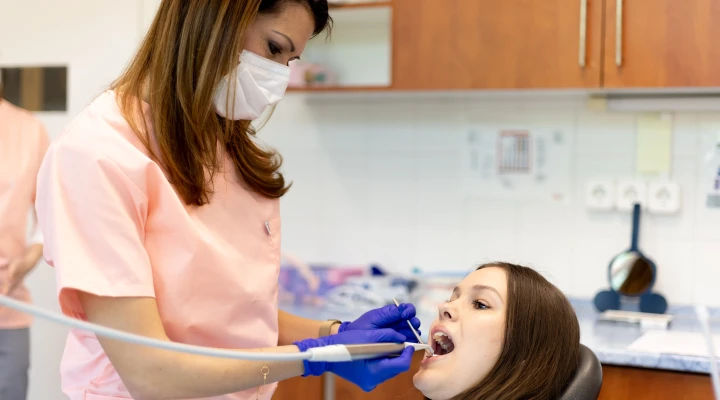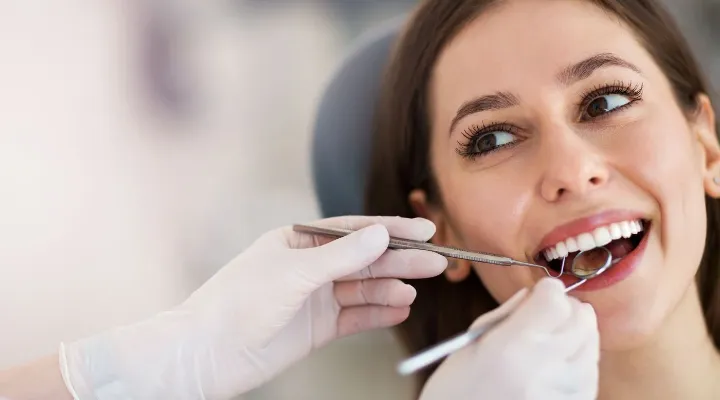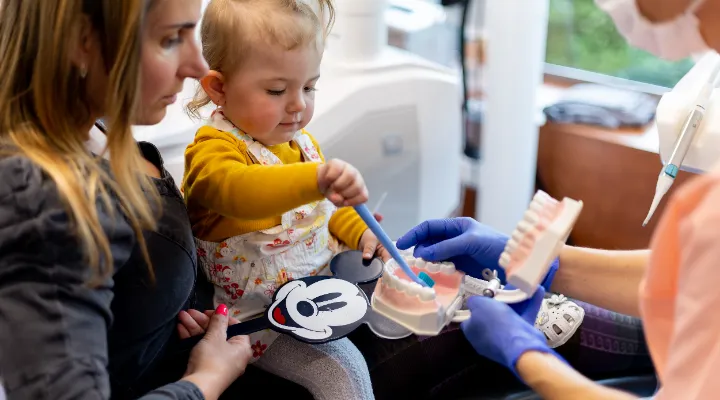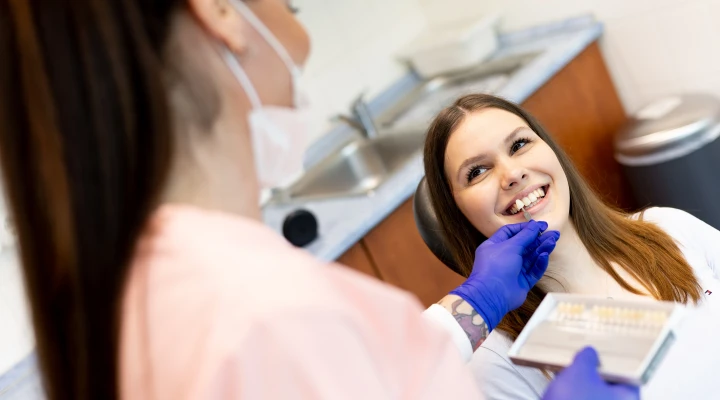An unexpected toothache can put a damper on a holiday that you've been looking forward to all year: either because you're on painkillers to get through the days until you get home, or because you need to find an emergency room in a foreign city (or even worse, in a foreign country) where you can get acute care. Whichever solution we might choose, it can have a major impact on our rest. D.D. Mónika Savanya Head of RMC Dental Center would like to help you avoid these unpleasant situations by taking proper care.
- Prevention is key in dentistry. Even when we're talking about how to go on our summer holidays. If it's been a long time since you visited the dentist, make an appointment for a dental screening before your holiday. This could prevent any unpleasant surprises.
- A panoramic X-ray is a safe "map" for the dentist which can be taken in 5 minutes in a digital format. There is nothing to be afraid of since this modern equipment uses minimal radiation. If you haven't had an X-ray taken in the last six months, it's worth having one taken before (or at the same time as) your dental screening, as it can reveal any hidden problems before symptoms appear.
- Teeth cleaning is not just a matter of aesthetics. It is also recommended to have dental hygiene cleaning of the teeth every six months because tartar presence can cause or intensify gingivitis.
- If possible, do not start any major dental treatment (e.g. deep cavity treatment, dental prosthesis, or oral surgery) the week before the holiday. If you act early enough, you will not have to go on a trip with a temporary filling or crown, because if the treatment is finished at least a month before the holiday and you still have problems with the tooth/teeth you have treated, you will still have time to go back to your dentist.
- If you have not managed to complete the dental treatment you have already started (e.g. a sudden toothache or inflammation occurs two days before departure), you should contact your dentist and inform him/her of your intention to travel. This will enable him to provide you with the appropriate prescription for painkillers and/or antibiotics if necessary.
- Make sure to have travel insurance that covers dental care.
Some useful tips for packing a medicine bag:
- basic equipment: toothbrush, toothpaste, dental floss, interdental brush, mouthwash recommended for everyday use
- painkillers with different active ingredients: e.g. ibuprofen, diclofenac, etc.
- antibiotics (if found justified and prescribed by the doctor before the trip)
- mouthwashes with antibacterial effect (e.g.: some kind of chlorhexidine gargle, useful for gingivitis)
- antiviral cream or brush for aphtha or herpes
- cooling gel for inflammation
The most common dental problems that might occur during the holiday (and for which you really should see a doctor as soon as possible):
- gingivitis or a chronic inflammation of a dead tooth (caused by strong wind, air-conditioning, hot fronts, or air pressure differences on an airplane)
- dental cervical sensitivity (due to consumption of iced drinks and cold sweets)
- tooth injuries, fractures (e.g. due to pool accidents)
The best advice is to find time for a dental screening before the holiday so you can concentrate on having a great time during your holiday.











